#dimitri tiomkin
Text
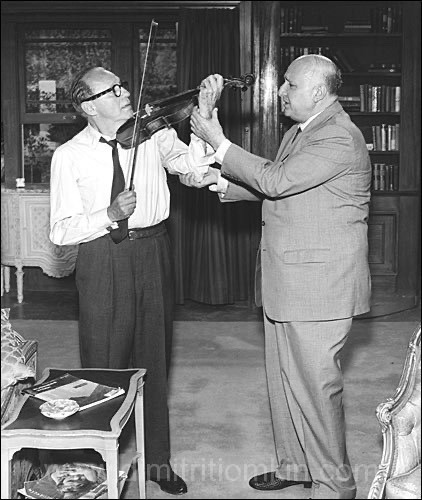
Dimitri Tiomkin giving Jack Benny some musical pointers in 1961.
34 notes
·
View notes
Text
Dimitri Tiomkin: Search For Paradise (1957)
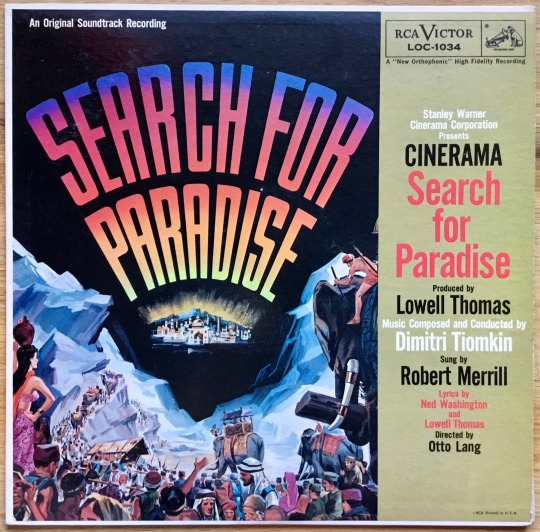

An original soundtrack recording for the 1957 Otto Lang film "Search For Paradise".
RCA Victor Records
#my vinyl playlist#dimitri tiomkin#search for paradise#cinerama#rca victor records#50’s music#movie soundtrack#movie score#record cover#album cover#album art#vinyl records
4 notes
·
View notes
Photo
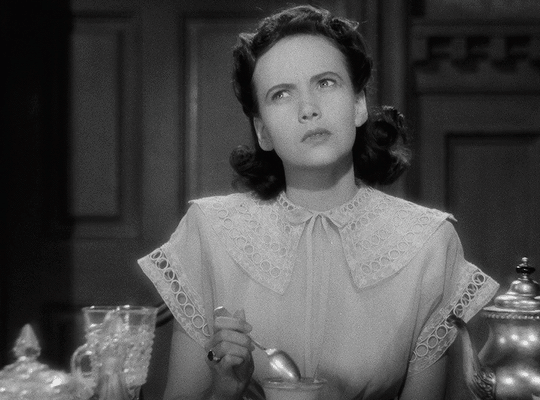
- Oh, what's the matter with you two? Do you always have to talk about killing people?
- We're not talking about killing people. Herb's talking about killing me and I'm talking about killing him.
- It's your father's way of relaxing.
- Can't he find some other way to relax?
Shadow of a Doubt, Alfred Hitchcock (1943)
#Alfred Hitchcock#Thornton Wilder#Sally Benson#Alma Reville#Teresa Wright#Joseph Cotten#Macdonald Carey#Henry Travers#Patricia Collinge#Hume Cronyn#Wallace Ford#Edna May Wonacott#Charles Bates#Joseph A. Valentine#Dimitri Tiomkin#Milton Carruth#1943
8 notes
·
View notes
Text
vimeo
My latest film is called Sweet Nothings. It's about my experience at Disneyland Paris as an autistic person, and how an indescribable aesthetic ties into my love of Westerns.
#autism#actually autistic#disneyland paris#pirates of the caribbean#for a few dollars more#tuco ramirez#efteling#martha mödl#rio bravo#dimitri tiomkin#Vimeo#tamsin parker art
3 notes
·
View notes
Text
youtube
I think we call all agree 2024 is going to be a year like no other.
My New Year's resolution is whenever things get to be too much I promise stop for 30 seconds to replay Patrick Stewart dancing in front of a 1970s Marlboro commercial singing:
Cut 'em out, ride 'em in
Ride 'em in, cut 'em out
Cut 'em out, ride 'em in
Rawhide
#Patrick Stewart#New Year 2024#New Year's resolution#Rawhide#Dimitri Tiomkin#Ned Washington#International Rescue Committee#Cowboy Classics
0 notes
Text

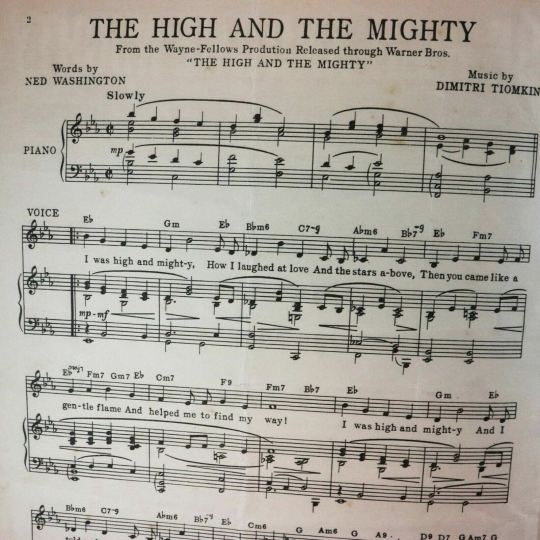
The High And The Mighty Music Sheet 1954 Dimitri Tiomkin Vintage || autradingpost
1 note
·
View note
Text
Delitto perfetto
Dimitri Tiomkin, ovvero Dmitrij Zinov’evič Tëmkin (10 maggio 1894 - 1979): Dial M for Murder, suite sinfonica (arrangiamento di John Mauceri) tratta dalla colonna sonora del film omonimo (Il delitto perfetto, 1954) di Alfred Hitchcock. DR Symfoniorkestret diretto da Mauceri.
youtube
View On WordPress
0 notes
Photo
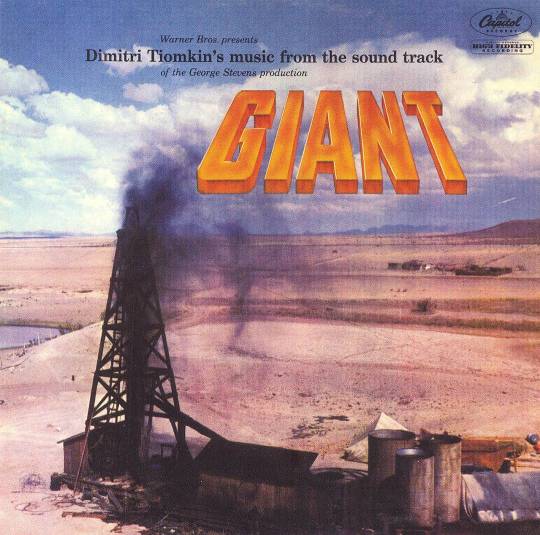
AllMusic Staff Pick:
Dimitri Tiomkin
Giant [Original Motion Picture Soundtrack]
About rival Texas cattle and oil barons, Giant had one of the first really good sounding soundtrack albums, with big, booming acoustics that seemed almost bigger than the 210-minute epic itself. With its rousing mixed chorus and a memorable melodic arc, the sprawling "Main Title" was so popular that the Texas legislature later adopted it as the state's anthem.
- Bruce Eder
1 note
·
View note
Photo

148. Duelo de Titãs (Last Train from Gun Hill, 1959), dir. John Sturges
#cinema#john sturges#kirk douglas#american movies#1950s movies#classic movies#western#rape and revenge#old west#knocked out#scar#conflict between friends#father son relationship#marshal#music by dimitri tiomkin#cinematography by charles lang#costume design by edith head#cinema icons#cult director#cinefilos
3 notes
·
View notes
Text
Jester Hairston
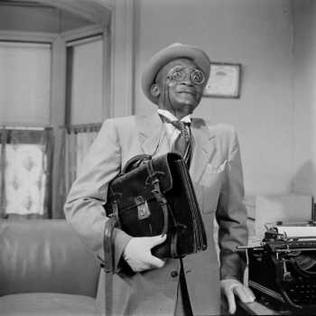
By Life Magazine via Google Images-Photographer Loomis Dean., Fair use, https://en.wikipedia.org/w/index.php?curid=28896923
Jester Joseph Hairston (July 9, 1901 – January 18, 2000) was an American composer, songwriter, arranger, choral conductor and actor. He was regarded as a leading expert on black spirituals and choral music. His notable compositions include "Amen," a gospel-tinged theme from the film Lilies of the Field and a 1964 hit for the Impressions, and the Christmas song "Mary's Boy Child."
Hairston was born in Belews Creek, a rural community on the border of Stokes, Forsyth, Rockingham and Guilford counties in North Carolina. His grandparents had been slaves. At an early age, he and his family moved to Homestead, Pennsylvania, just outside Pittsburgh, where he graduated from high school in 1921. Hairston was very young when his father was killed in a job-related accident. Hairston was raised by his grandmother while his mother worked. Hairston heard his grandmother and her friends talking and singing about plantation life and became determined to preserve this history through music.
Hairston initially majored in landscape architecture at Massachusetts Agricultural College in the 1920s. He became involved in various church choirs and choral groups, and accompanist Anna Laura Kidder saw his potential and became his benefactor. Kidder offered Hairston financial assistance to study music at Tufts University. from which he graduated in 1929. He was one of the first black students admitted to Tufts. Later he studied music at the Juilliard School.
Hairston pledged the Chi chapter of the Kappa Alpha Psi fraternity in 1925. He worked as a choir conductor in the early stages of his career. His work with choirs on Broadway eventually led to singing and acting parts in plays, films, radio programs and television shows.
Hairston sang with the Hall Johnson Choir in Harlem for a time but was nearly fired from the all-black choir because he had difficulty with the rural dialects that were used in some of the songs. He had to shed his Boston accent and relearn the country speech of his parents and grandparents. Johnson had told him: "We're singing ain't and cain't and you're singing shahn't and cahn't and they don't mix in a spiritual." The choir performed in many Broadway shows, including The Green Pastures. In 1936, the choir was asked to visit Hollywood to sing for the film The Green Pastures. Russian composer Dimitri Tiomkin heard Hairston and invited him to what would become a 30-year collaboration in which Hairston arranged and collected music for films. In 1939, Hairston married Margaret Swanigan. He wrote and arranged spirituals for Hollywood films as well as for high school and college choirs around the country.
Hairston wrote the song "Mary's Boy Child" in 1956. He also arranged the song "Amen", which he dubbed for the Sidney Poitier film Lilies of the Field, and arranged traditional Negro spirituals.[16] Most of Hairston's film work was in the field of composing, arranging and choral conducting. He also acted in more than 20 films, mostly in small roles, some uncredited. Hairston starred in John Wayne's The Alamo (1960), in which he portrayed "Jethro," a slave owned by Jim Bowie. In 1962’s To Kill a Mockingbird Hairston portrayed the uncredited role of the father of accused rapist Tom Robinson. In 1967’s In the Heat of the Night, Hairston portrayed the butler of a wealthy racist being investigated for murder. In both films, Hairston shot scenes along side men who won an Academy Award for Best Actor in those respective films for portraying white Southerners navigating their jobs through a racially divided culture.
In 1961, the U.S. State Department appointed Hairston as Goodwill Ambassador. He traveled all over the world teaching and performing the folk music of the slaves. In the 1960s, he held choral festivals with public high-school choirs, introducing them to Negro spiritual music, and sometimes led several hundred students in community performances. His banter about the history of the songs along with his engaging personality and sense of humor endeared him to many students.
During his nationwide travels, Hairston checked local phone books for other Hairstons and reunited many people on his family tree, both black and white. He composed more than 300 spirituals. He was the recipient of many honorary doctorates, including a doctorate from the University of Massachusetts in 1972 and a doctorate in music from Tufts in 1977.
In his later years, Hairston served as a cultural ambassador for American music, traveling to numerous countries with choral groups that he had assembled. In 1985, he took the Jester Hairston Chorale, a multiracial group, to sing in China at a time when foreign visitors would rarely appear there.
Hairston died in Los Angeles of natural causes in 2000 at age 98. For his contribution to the television industry, Hairston has a star on the Hollywood Walk of Fame located at 6201 Hollywood Boulevard. He is interred at Inglewood Park Cemetery, Inglewood, California.
28 notes
·
View notes
Text

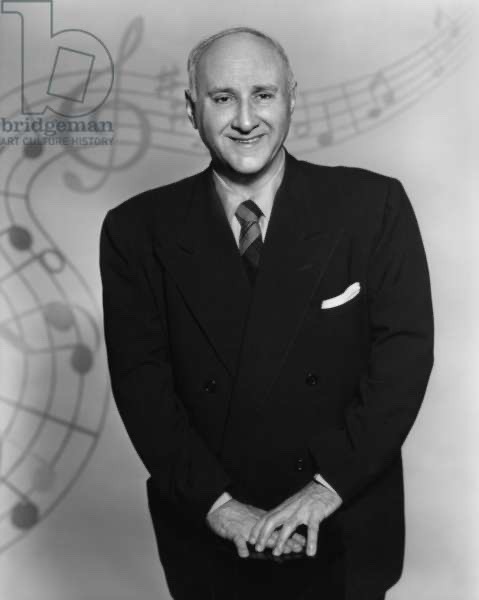
Composer/conductor Dimitri Tiomkin (May 10, 1894 – November 11, 1979)
8 notes
·
View notes
Text
#afi#american film institute#movie polls#music polls#film score#film soundtrack#movie score#movie soundtrack#star wars#gone with the wind#lawrence of arabia#psycho#the godfather#jaws#laura 1944#the magnificent seven#chinatown#high noon#john williams#elmer bernstein#jerry goldsmith#bernard herrmann#nino rota#1930s movies#1940s movies#1950s movies#1960s movies#1970s movies#star wars a new hope
8 notes
·
View notes
Photo
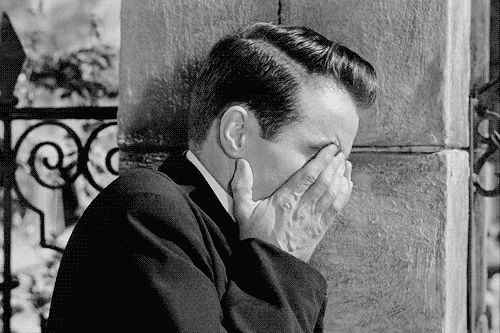
I must confess to you. I must tell someone. I want to make a confession.
I Confess, Alfred Hitchcock (1953)
#Alfred Hitchcock#George Tabori#William Archibald#Montgomery Clift#Anne Baxter#Karl Malden#Brian Aherne#O.E. Hasse#Roger Dann#Dolly Haas#Charles Andre#Robert Burks#Dimitri Tiomkin#Rudi Fehr#1953
6 notes
·
View notes
Photo


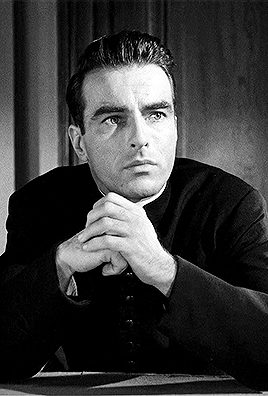
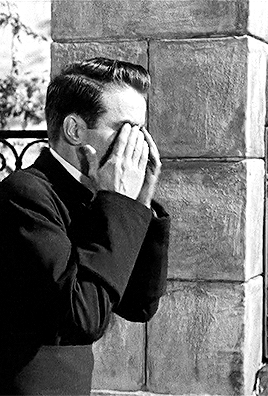
Montgomery Clift in I Confess (Alfred Hitchcock, 1953)
Cast: Montgomery Clift, Anne Baxter, Karl Malden, Brian Aherne, O.E. Hasse, Roger Dann, Dolly Haas, Charles Andre. Screenplay: George Tabori, William Archibald, based on a play by Paul Anthelme. Cinematography: Robert Burks. Art direction: Ted Haworth, John Beckman. Film editing: Rudi Fehr. Music: Dimitri Tiomkin.
I Confess is generally recognized as lesser Hitchcock, even though it has a powerhouse cast: Montgomery Clift, Anne Baxter, and Karl Malden. It also has the extraordinary black-and-white cinematography of Robert Burks, making the most of its location filming in Québec. Add to that a provocative setup -- a priest learns the identity of a murderer in confession but is unable to reveal it even when he is put on trial for the murder -- and it's surprising that anything went wrong. I think part of the reason for the film's weakness may go back to the director's often-quoted remark that actors are cattle. This is not the place to discuss whether Hitchcock actually said that, which has been done elsewhere, but the phrase has so often been associated with him that it reveals something about his relationship with actors. It's clear from Hitchcock's repeat casting of actors like Cary Grant and James Stewart that he was most comfortable directing those he had learned he could trust. Clift's stiffness and Baxter's mannered overacting in this film suggest that Hitchcock felt no rapport with them. But I Confess also played directly into the hands of the censors: The Production Code was administered by Joseph Breen, a devout Catholic layman, and routinely forbade any material that reflected badly on the clergy. In the play by Paul Anthelme and the first version of the screenplay by George Tabori, the priest (Clift) and Ruth Grandfort (Baxter) have had a child together, and the murdered man (Ovila Légaré) is blackmailing them. Moreover, because he is prohibited from revealing what was told him in the confessional and naming the real murderer (O.E. Hasse), the priest is convicted and executed. Warner Bros., knowing how the Breen office would react, insisted that the screenplay be changed, and when Tabori refused, it was rewritten by William Archibald. The result is something of a muddle. Why, for example, is the murderer so scrupulous about confessing to the priest when he later has no hesitation perjuring himself in court and then attempting to kill the priest? No Hitchcock film is unwatchable, but this one shows no one, except Burks, at their best.
gifs: tennant
33 notes
·
View notes
Text
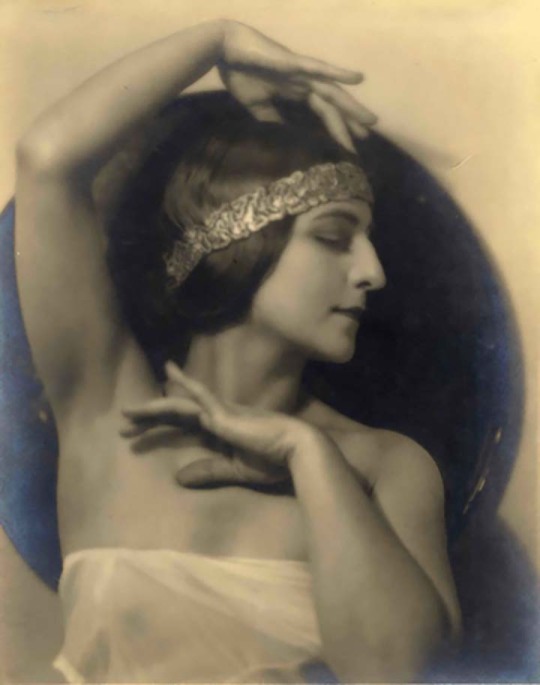
Austrian-American choreographer and dancer Albertina Rasch (1891-1967) by unknown photographer | src Dimitri Tiomkin official website
view more on wordPress
#albertina rasch#danseuse#danzatrice#dance pose#portrait#circle#dancer#Tänzerin#bailarina#late 1910s#Porträt#retrato#ritratto#portret#retrat#Bildnis#tanzpose#unknown photographer#1910s
134 notes
·
View notes